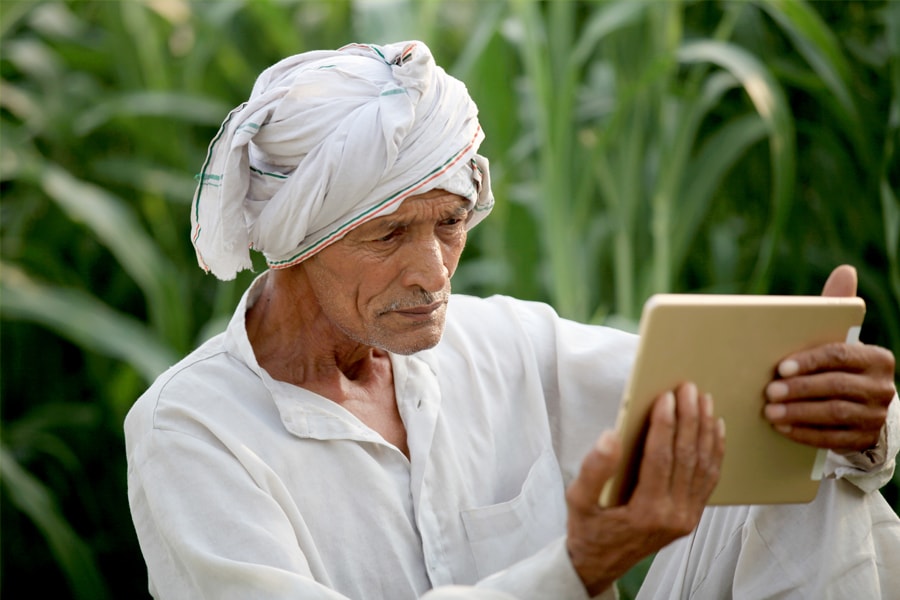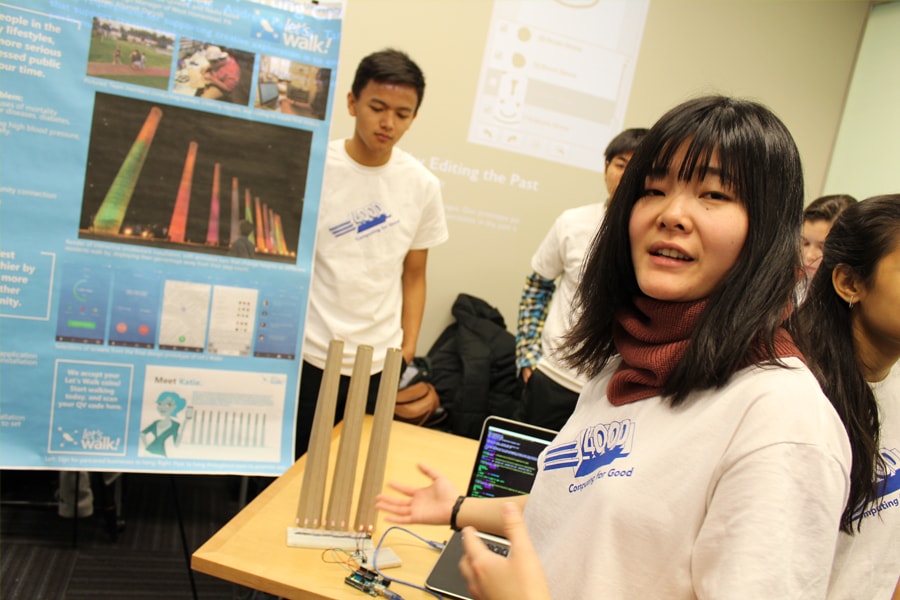
Learning by Doing Good
Carnegie Mellon University students love to create cool new technologies, but as students discovered in a course that debuted this fall, sometimes it can be even more rewarding to apply existing technologies in new ways that can unite communities or perhaps save lives.
In the project course "Computing for Good," several dozen students used satellite imagery to detect illegal mines in the Congo, created apps to coordinate timely pickup of harvested crops in Columbia and designed an augmented reality system to show farmers in Rwanda how investments in irrigation systems would improve their land.
"I believe if something has a meaning, a purpose, it engages students more and they learn more," said Afsaneh Doryab, a systems scientist in the Human-Computer Interaction Institute who taught the course with Anind Dey, the then-HCII director. "In the School of Computer Science, education is about more than just theoretical knowledge; students learn by doing good."
One team of students worked with an NGO in India to help marginal farmers who, burdened by debt, commit suicide at the rate of 16,000 a year. The students designed a profit prediction tool to show farmers the likely yield and profits from more than a dozen crops, including maize, cotton, sugar cane, rice and urad beans.
Xinwen Liu, a sophomore in information systems, explained that the computer program factors in such variables as size of the farm, rainfall, temperatures, the farmer's budget and the farmer's debt to calculate potential profits from a crop.
The program and its user interface were field tested three times by the NGO in Odisha, a state on the eastern coast of India where 50 percent of farmers are considered marginal, to gauge the level of interest in the technology and the usability of the interface.
Another team member and Odisha native, senior interdisciplinary major Svayam Mishra, said farmers there do not tend to change crops much, even when crop yields dip or the marketability of the crops decline. By providing crucial information not otherwise available, the profit-predicting tool could enable farmers to seriously consider switching to more promising crops, he added.

HCII master’s student Shen Lu presents a mockup of the Homestead smokestack projection scheme that her team developed to support a community walking program.
Closer to home, another team worked with officials in West Homestead to devise a walking app that would encourage borough residents to be more physically active and help increase cohesiveness in a community that includes both older, lifelong residents and millennials seeking cheap housing.
Originally the idea of a borough council member, the "Let's Walk" program envisioned by the students would gamify fitness, giving participants an opportunity to earn points that can be exchanged for goods with local merchants. The program also would provide a smartphone interface that helps connect users with other walkers, encouraging good-natured competition, said Hamza Qureshi, a junior architecture student.
A unique aspect of the program takes advantage of the row of smokestacks from the old Homestead Works, now a signature feature of the Waterfront development in Homestead. Team member Shen Lu, a HCII master's degree student, said a series of projectors would shine participants names and walking achievements on the smokestacks as they walked by.
Cindy Bahn, borough manager, said Waterfront management has already shown support for the projector concept and the borough is seeking funding to make Let's Walk a reality for its 6,000 residents.
"They've been a dream team," Bahn said of the five-member team, noting she hoped many would be able to continue with the program beyond the semester.
Doryab said students would be able to continue their projects as independent study in the spring. Student groups such as Design for America and Tech4Society also might be involved in some of the ongoing work, she added.
"The students have been really enthusiastic about what they are doing," she said. "We want to help them see this through."